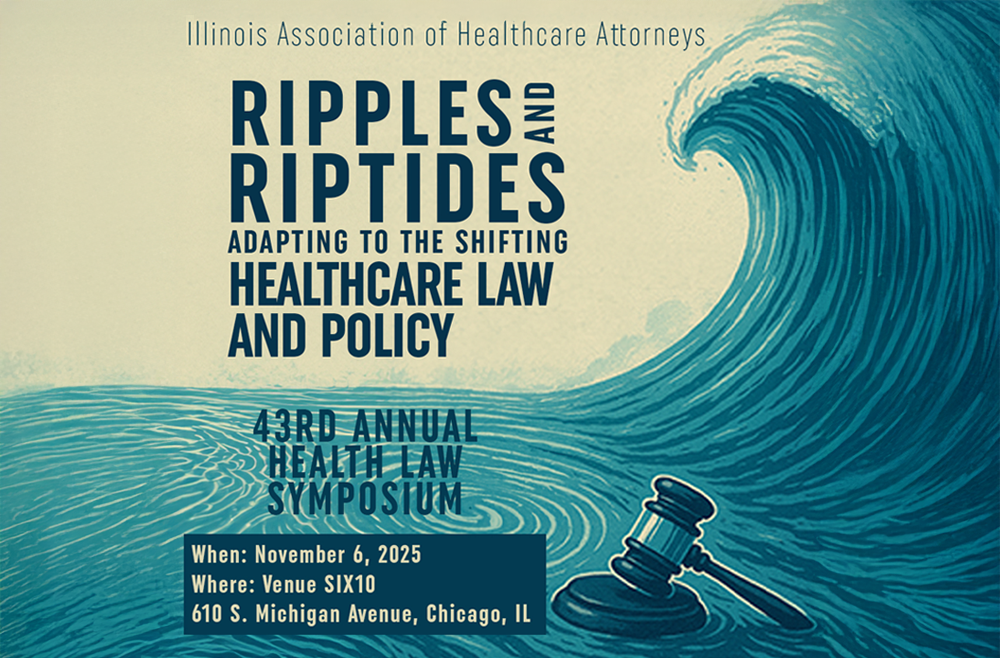Reasons for Optimism as Eleventh Circuit Revisits Hunstein and Doubles Down
Consumer Law Hinsights – Special Edition
Hinshaw Alert | 5 min read
October 29, 2021 | Consumer Law Hinsights – Special Edition
In Hunstein v. Preferred Collection and Management Services, the Eleventh Circuit drastically altered the Fair Debt Collection Practices Act landscape when, in April of 2021, it determined that the statute was implicated when a debt collector used a third-party vendor to mail notices (violating the FDCPA's prohibition of relaying information about the debtor to a third party). Since then, the case has been subject to both a petition for rehearing and a petition for rehearing en banc, and a decision has been eagerly awaited—particularly in the wake of the intervening Supreme Court TransUnion v. Ramirez decision, which seemingly undercut the original Hunstein decision's reasoning.
On October 28, 2021, the three-judge panel vacated its original opinion and replaced it with another—one that affirms the central holding of the original decision and defends the outcome in light of the recent United States Supreme Court decision in TransUnion v. Ramirez.
Case Discussion
There is reason for debt collectors to be optimistic about aspects of the decision. First, the opinion does not hold that using a mail vendor incontrovertibly establishes standing and an FDCPA violation. The court squarely rests its outcome on the fact that it was required to take as true the allegations that certain medical information was communicated to "employees" of the mail vendor generally because the case was resolved on a motion to dismiss. The court holds open the potential for evidence to establish otherwise, resulting in the plaintiff's loss. Second, and perhaps more importantly, the substituted opinion contained a rigorous and well-reasoned dissent. This dissent could result in the full en banc Eleventh Circuit deciding to consider the case, and it provides other Circuits solid ground on which to disagree with Hunstein's outcome.
The facts of Hunstein are straightforward: the plaintiff alleged that the defendant violated the FDCPA when it used a third-party mail vendor to send notices relating to a debt incurred by the plaintiff's minor son for medical treatment. Hunstein v. Preferred Collection and Mgmt. Servs., No. 19-14434, at *2 (11th Cir. Oct. 28, 2021). At the outset, the Eleventh Circuit acknowledged that Hunstein did not sufficiently allege an emotional injury or "risk of real harm." Id. at *7-8. However, it considered whether he alleged an intangible injury resulting from a statutory violation. Id. at *9. The court pointed to privacy laws as being potentially analogous, and particularly public disclosure of private facts. Id. at *10.
It next stated, relying on the Ramirez case, that to allege injury based on a statutory violation, Article III does not require an exact match between the statutory claim and a common law cause of action, but only a close relationship. Id. at *11. Although it acknowledged that the Supreme Court has not yet articulated what must be present to find a close relationship, the Eleventh Circuit drew on sister Circuit and lower court decisions to hold that the alleged injury must only be similar "in kind" to the harm addressed by the common law action—it does not need to be similar "in degree." Id. at *12 (emphasis in original).
The court held that, based on the "same kind . . . but not necessarily same degree" test, Hunstein had standing. Id. at *19. Specifically, Hunstein alleged a harm similar to the common law privacy tort of public disclosure of private facts. Id. It held that "some measure of disclosure," as alleged by Hunstein, made this similar in kind to the "publicity" required for the privacy tort. Id. (emphasis in original). It stressed that the unique facts of the case—that the disclosed information was about Hunstein's minor son, including his name and the fact that the debt was for medical treatment—could offend a reasonable person. Id. It also held that the procedural fact that the defendant, Preferred, had admitted in pleadings that relaying the information to the vendor was a communication made this injury the same kind as the privacy tort. Id. at *22.
The Eleventh Circuit then addressed why its decision was correct in light of the Ramirez case, where the Supreme Court stated that the use of a letter vendor was not "publication." Id. at *25. First, it found Ramirez distinguishable because that case went to trial, so the Supreme Court was analyzing standing in the context of adduced evidence, whereas the Eleventh Circuit was bound by the allegations in the complaint because the case was resolved on a motion to dismiss. Id. at *27-28. Second, it determined that reading Ramirez's discussion about mail vendors as determinative would convert the "close relationship" test into a "perfect match" test. Id. at *28.
Having held that Hunstein sufficiently alleged standing, it then determined that relaying the information to a mail vendor was a communication in connection with the collection of a debt under the FDCPA. Id. at *32. In so holding, the court determined that a communication did not itself need to demand payment to implicate the statute. Id. at *35-39. It also declined to adopt a holistic, multifactor test regarding the communication to determine the relationship between the parties and the nature of the communication. Id. at *40. Finally, it was not swayed by the argument that it was significant that no case had yet held that this practice violated the FDCPA. Id. at *41.
Thus, the Eleventh Circuit held that Hunstein had adequately alleged both standing and a claim and remanded the case for further proceedings.
The court did not hold, however, that a mail-vendor FDCPA claim determinatively establishes standing. It stated that a significant difference in "degree" between the alleged harm and the common law action may disqualify an intangible-injury plaintiff. Id. at *17. (But it reiterated that only a harm that is "categorically distinct" from the common law comparator would scuttle a plaintiff's standing. Id.) It also acknowledged that where information was only relayed to a "small group of persons" employed at the vendor it may result in a different outcome but held that it was bound by the complaint's allegations, which just described communication to the vendor's "employees" generally. Id. at *20 n.7. It further conceded that the factual development of the Hunstein case itself may show that mail vendors "do not routinely read, care about, or abuse the information that debt collectors transmit to them", thus implicating standing based on evidence. Id. at *42.
The Dissent
The decision was accompanied by a vigorous dissent. The dissent reasoned that the Ramirez case requires plaintiff-specific facts that allow the court to find a common law analogue to the alleged statutory violation. Id. at *48. It pointed out that the Supreme Court in Ramirez looked to the elements of a privacy tort to see if it bore a close relationship to the alleged harm, while in Hunstein disclosure, by itself, was not like "publicity" in the context of public disclosure of private facts. Id. at *49-50. It also argued that, at common law, debt notifications to third parties were not highly offensive to a reasonable person. Id. at *54. Next, it stated that Congress envisioned the role of intermediaries, like mail vendors, in the FDCPA's statutory scheme. Id. at *59. Finally, it reasoned that the FDCPA's view of damages undermined Hunstein's standing. Id. at *64.
Conclusion
Although this decision represents an eagerly-awaited piece of FDCPA jurisprudence, it is likely that the substituted opinion will not be the final word on the issue.















